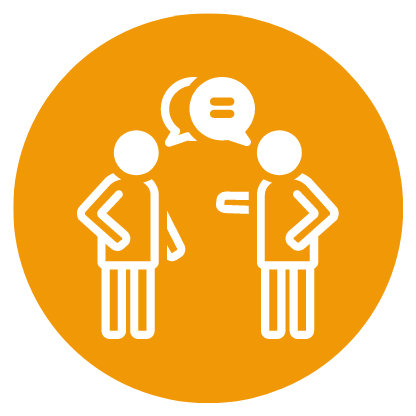Your Body Language May Shape Who You Are | Amy Cuddy | TED
We Make Your Education Count

Get the Credit You Deserve and Become the Most Attractive Job Candidate by Earning and Posting A+ Badges to Your Linkedin Profile.
Sign Up to Get Started at Accredicity
|
Discover how body language affects your life and learn how to use it to your advantage with Amy Cuddy's insightful video. Amy Cuddy's TED Talk explores how our body language can shape who we are. She suggests that changing our posture for two minutes can significantly change the way our life unfolds. Cuddy explains how our nonverbal behavior can lead to powerful or powerless feelings, and how this can affect our interactions with others. Through her examples, she reveals how our nonverbal behavior can be used to predict meaningful life outcomes like who we hire or promote, who we ask out on a date, or who we vote for. She suggests that even small changes in our body language can lead to big changes in our thoughts, feelings and physiological responses. Learning Outline1. The power of body language can have a significant impact on one's life outcomes. Instructional ContentOur body language can be an important factor in how we perceive ourselves and how we are perceived by others. It is not only about the physical appearance we portray but also about the signals we send out and the impact they have on our behavior. In her TED Talk, Amy Cuddy discusses the power of body language and how it can shape our lives. Cuddy explains that when we feel powerful, we naturally take up more space and display open, expansive body language. On the other hand, when we feel powerless, we tend to close up and make ourselves small. She also notes that our body language can influence how others perceive us, as well as how we perceive ourselves. In her research, she has found that when people watch 30-second soundless clips of real physician-patient interactions, their judgments of the physician's niceness can predict whether or not that physician will be sued. Cuddy suggests that by simply changing your posture for two minutes, you can influence your thoughts and feelings in a positive way. She believes that if we learn to tweak our body language a little bit, it can significantly change the way our lives unfold. By watching Cuddy's TED Talk, we can gain a better understanding of how body language can shape who we are. It can have a powerful impact on our lives, from influencing how others perceive us to how we perceive ourselves. Our body language has the potential to be a valuable tool in our lives, and by becoming aware of it, we can use it to our advantage. Communication
|

Our body language can tell others a lot about us, even if we don't say a word. It can show if we feel powerful or powerless. Powerful people tend to take up more space, hold their heads up, and spread out their arms. But powerless people make themselves smaller, hunch their shoulders, and wrap themselves up. Amy Cuddy, a social psychologist, wondered if we can fake feeling powerful by changing our posture. She did experiments and found that if you stand like a powerful person even if you don't feel it, you can actually start to feel more powerful and confident. So if you want to feel more powerful, try standing like a superhero! Video Quotes1. "So what nonverbals am I talking about? I'm a social psychologist. I study prejudice, and I teach at a competitive business school, so it was inevitable that I would become interested in power dynamics." - Amy Cuddy 2. "We are also influenced by our nonverbals, our thoughts and our feelings and our physiology." - Amy Cuddy 3. "Can you fake it till you make it? Like, can you do this just for a little while and actually experience a behavioral outcome that makes you seem more powerful?" - Amy Cuddy Related Quotes"It turns out that our bodies change our minds, and our minds can change our behavior and our behavior can change our outcomes." -Amy Cuddy "Our nonverbals govern how we think and feel about ourselves." -Amy Cuddy "Our bodies change our minds." -Amy Cuddy Competencies1. Human Communication Learning Outcomes1. Recall: Students will be able to explain the differences between nonverbal expressions of power and dominance. Sample Answers1. From what I've learned in this video, I understand that body language can play a large role in how we communicate and interact with others, as well as how we think and feel about ourselves. Our body language can communicate power and dominance, and can predict meaningful life outcomes like who we hire or promote, or who we ask out on a date. 2. The video also highlights how humans and animals use body language to express power and dominance. This includes making ourselves bigger and taking up more space, as well as opening up our posture. On the other hand, when we feel powerless, we make ourselves smaller and close up. 3. Lastly, I learned that our body language can also affect our internal thoughts and feelings, as well as our hormones. Pretending to be powerful for just a few minutes can lead to feeling powerful, and can lead to increased participation and better outcomes in life. Amy CuddyAmy Cuddy is a social psychologist and professor at Harvard Business School. She is an expert in the field of body language and its effects on behavior and how it shapes one's identity. She is best known for her research on "power poses" and how it can be used to boost your confidence. She is also the author of the book Presence: Bringing Your Boldest Self to Your Biggest Challenges. Amy Cuddy is associated with Harvard Business School, and her research has been featured in the New York Times, Time Magazine, and TED. Harvard Business School Faculty Profile Learning DesignThese competencies are important to learn for the course because they are all connected with effective communication. Human communication is the ability to use verbal and nonverbal cues to understand and be understood by others. Emotional intelligence is the ability to understand and manage emotions in oneself and others. Self-awareness is the ability to recognize one’s own thoughts, emotions, and beliefs. AssessmentQ: According to the video, which of the following is true about the use of nonverbal behaviors? A. They can predict whether or not a physician will be sued. Answer: A QuestionsCommon Hypothetical Questions: Real-Life Application Questions: KeywordsPower Nonverbals, Nonverbal Expressions, Physiological Changes, Power Dynamics, "Powerful People", "High Power", "Low Power", Body Language, Social Scientists, Life Outcomes, "Body Language", "Nonverbals" Facts1. Amy Cuddy's "power poses" can help people feel more powerful and perform better in job interviews. Trends1. Creating a “Body Language Bootcamp” for Business Professionals: Create a two-day workshop specifically designed to teach business professionals the power of body language. This workshop would include interactive activities, lectures, and role-playing sessions to help participants understand the importance of body language in professional and social settings. 2. Developing a Body Language App: Create a mobile application that helps users learn and practice body language techniques. This app would include a library of body language videos and images to help users recognize the importance of body language in different contexts. 3. Creating a Body Language Handbook: Create a handbook that explains the importance of body language and provides tips and tricks for recognizing and utilizing body language in different situations. 4. Developing a Body Language Certification Program: Develop a certification program that teaches individuals the basics of body language and how to use it effectively. This program would include lectures, interactive activities, and hands-on exercises to help participants hone their body language skills. 5. Hosting a Body Language Summit: Host an annual summit that brings together experts in the field of body language to discuss the latest trends, research, and applications. This summit would also feature workshops and panels to help participants understand the importance of body language and how to use it effectively. SourceThis learning instructional guidance was formulated using the GPT-3 language model created by OpenAI. ShareDiscover how body language can shape who you are. Amy Cuddy explains how a two-minute posture adjustment can significantly change your life. #BodyLanguage #NonVerbals #ChangeYourLife 🤔💪 @Accredicity |








 15 Creds - Communication
15 Creds - Communication



